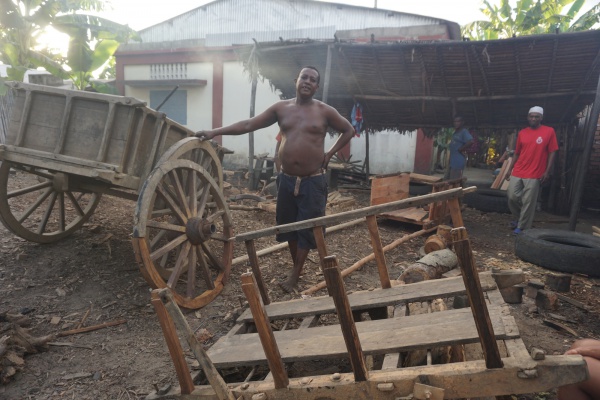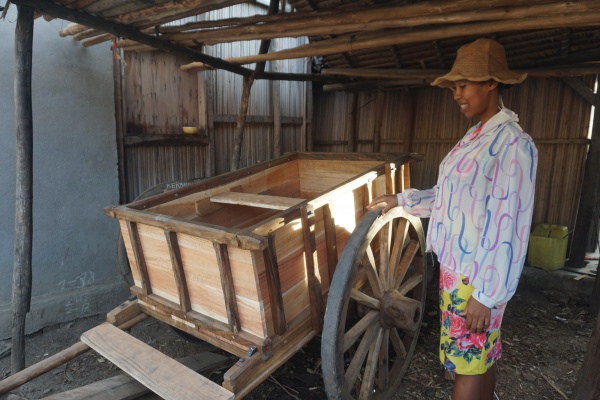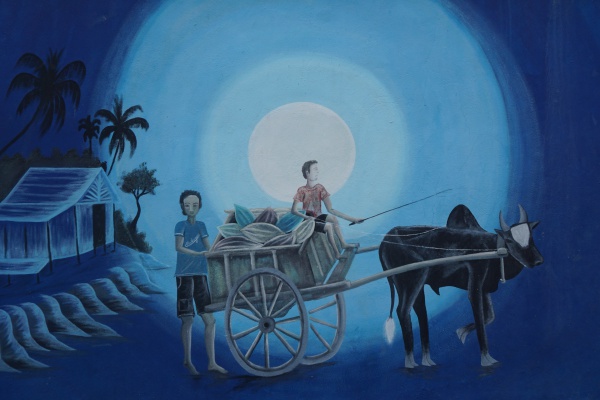Zebu cart
By sunrise at the Sambirano bridge, there is a traffic jam caused by a convoy of zebu carts slowly rolling across the narrow bridge. The drivers of these ox-powered carts would have started their journey in the dark to reach the central marketplace with their seasonal crops in the early morning hours.
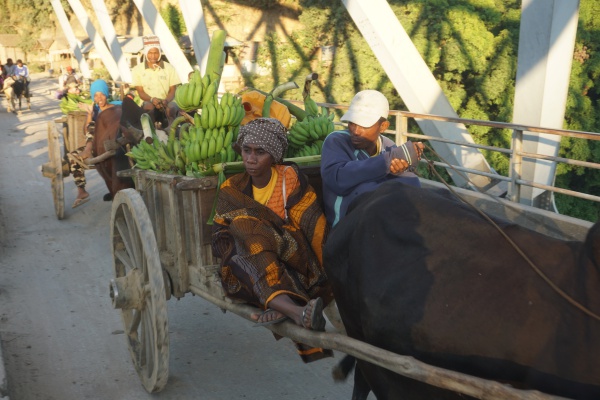
| ||
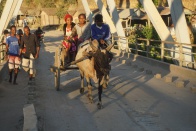
|

|

|
Zebu carts are common sights in and around Ambanja, the region, and across much of the island of Madagascar.
Dozens of workshops in Ambanja produce zebu carts. One such workshop in the town centre is run by Mr Theodore, who with his team of six skilled carpenters builds and assembles about 50 carts per year, all manually crafted without the use of electrical power tools.
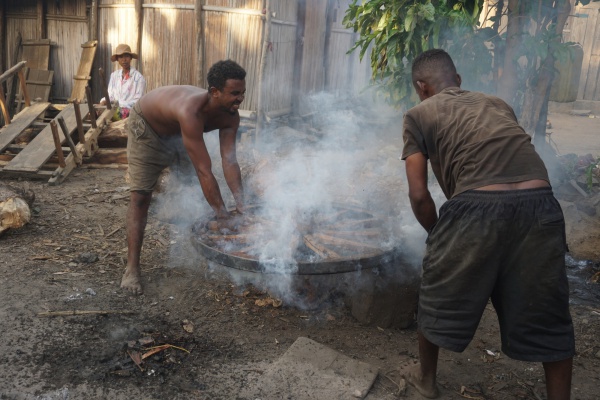
| ||
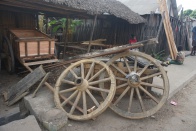
|
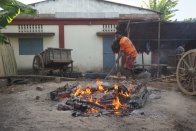
|
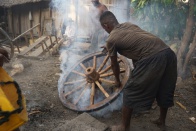
|

|
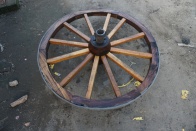
|
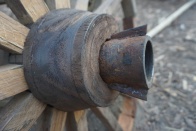
|
The design and model are always the same: A simple two-wheeler which easily attaches to one or more zebus. A cart takes about one week to make and costs 1,800,000 (USD 400).
The carts, or charettes as they are known, remain as practical and relevant as they were hundreds of years ago in providing indispensable transport to farmers in distributing their seasonal harvests to marketplaces without spending money on petrol.
The innumerable farmers maintaining the tradition of these vehicles deserve a collective environmental lifestyle award for their achievement of keeping their carbon footprints close to zero.
Additional information
View more Zebu cart photos
